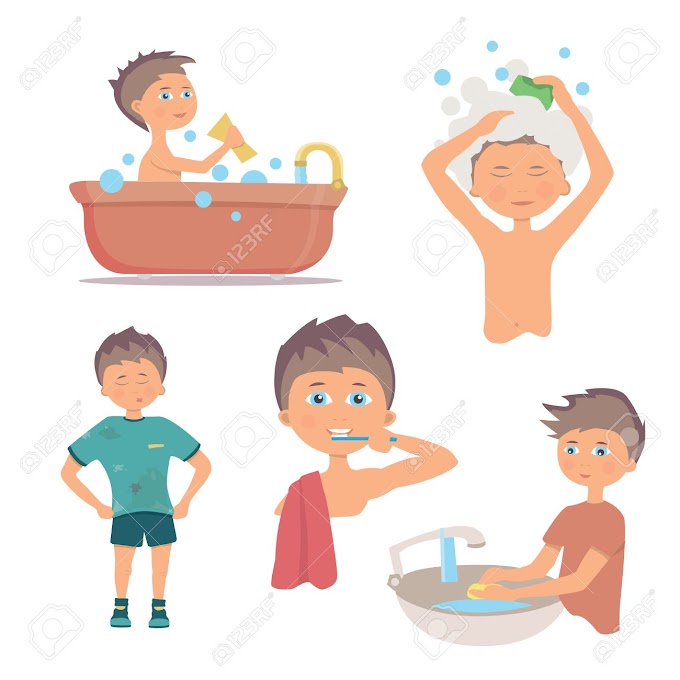What makes good hygiene?
Practicing good personal hygiene is important for helping keep the body healthy and clean.
In this article, we outline the importance of personal hygiene. We also discuss different types of hygiene, self-care routines, and what may happen if hygiene practices lapse.
Good personal hygiene can benefit both physical and mental health.
Good personal hygiene involves keeping all parts of the external body clean and healthy. It is important for maintaining both physical and mental health.
In people with poor personal hygiene, the body provides an ideal environment for germs to grow, leaving it vulnerable to infection.
On a social level, people may avoid a person with poor personal hygiene, which may result in isolation and loneliness.
On a social level, people may avoid a person with poor personal hygiene, which may result in isolation and loneliness.
Types of personal hygiene
There are many types of personal hygiene.
The following list is a good starting point for someone looking to build a personal hygiene routine:
Dental
Dental hygiene involves more than just having white teeth. A good dental hygiene routine can help prevent issues such as gum disease and cavities. It can also prevent bad breath.
Body
Several million sweat glands cover the human body. When bacteria break down sweat, the process creates a smell or body odor.
Hand washing
Regular hand washing is one of the best ways to avoid spreading communicable diseases.
The Centers for Disease Control and Prevention (CDC)Trusted Source recommend washing the hands at certain times:
before, during, and after preparing food
before eating food
before and after looking after anyone who is vomiting or has diarrhea
before and after treating a cut or wound
after going to the bathroom
after changing diapers or cleaning up a child who has used the toilet
after blowing the nose, coughing, or sneezing
after touching garbage or dirty surfaces or objects
after handling pets or pet-related items, such as food
How to maintain good personal hygiene
Knowing how to maintain good personal hygiene can make it easier to build a routine. A person should have some basic knowledge of the following types of hygiene:
Dental hygiene
For a healthy mouth and smile, the American Dental Association (ADA) recommend brushing the teeth for 2 minutes at least twice a day — once before breakfast and once before bed.
People should use an ADA-accepted fluoride toothpaste and replace the toothbrush every 3–4 months. The ADA also advise people to floss daily.How to maintain good personal hygiene
Knowing how to maintain good personal hygiene can make it easier to build a routine. A person should have some basic knowledge of the following types of hygiene:
Hand washing
The CDCTrusted Source outline five simple steps for effective hand washing:
Wet the hands with clean, running water, then turn off the tap and apply soap.
Lather the hands by rubbing them together with the soap, remembering to reach the backs of the hands, between the fingers, and under the nails.
Scrub the hands for at least 20 seconds, which a person can time by humming the “Happy Birthday” song twice.
Rinse the hands well under clean, running water.
Dry the hands using a clean towel or air dry them.
Body
It is advisable to shower or bathe daily, using soap and water to rinse away dead skin cells, oil, and bacteria. People can pay special attention to areas that accumulate more sweat, such as the armpits, in between the toes, and the groin area.
They should also wash their hair with shampoo at least once a week, or more if necessary. Applying deodorant when fully dry can help prevent body odors.
Learn more about how often to shower here.
Nails
Using sanitized tools to trim the nails and keep them short is one of the best ways to ensure that no dirt can collect underneath them.
Scrubbing the underside of the nails with a nail brush can form part of a person’s hand washing routine.
Menstrual and genital hygiene
It is important to change sanitary products regularly and to wash the hands before and after changing tampons, pads, or any other sanitary products.
As vaginas are self-cleaning, using soap to clean the vagina can cause an imbalance of its natural bacteria and lead to infections. The vulva (the external part of the vagina) should only need cleaning once a day using a mild soap and water.
People with an uncircumcised penis can clean it by gently pulling back the foreskin and washing underneath it with warm water or soap.






0 Comments